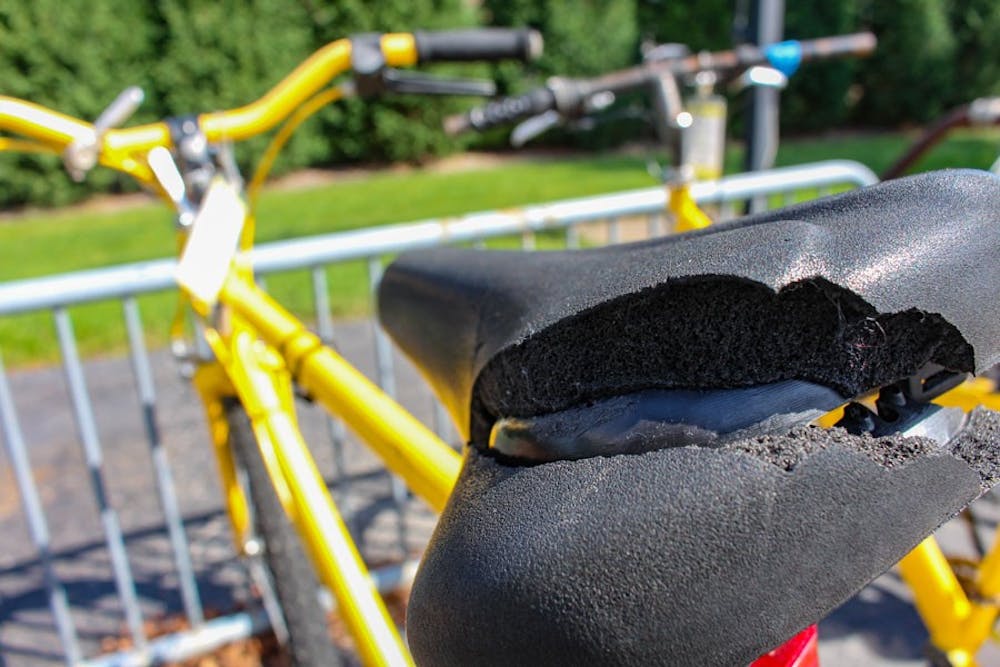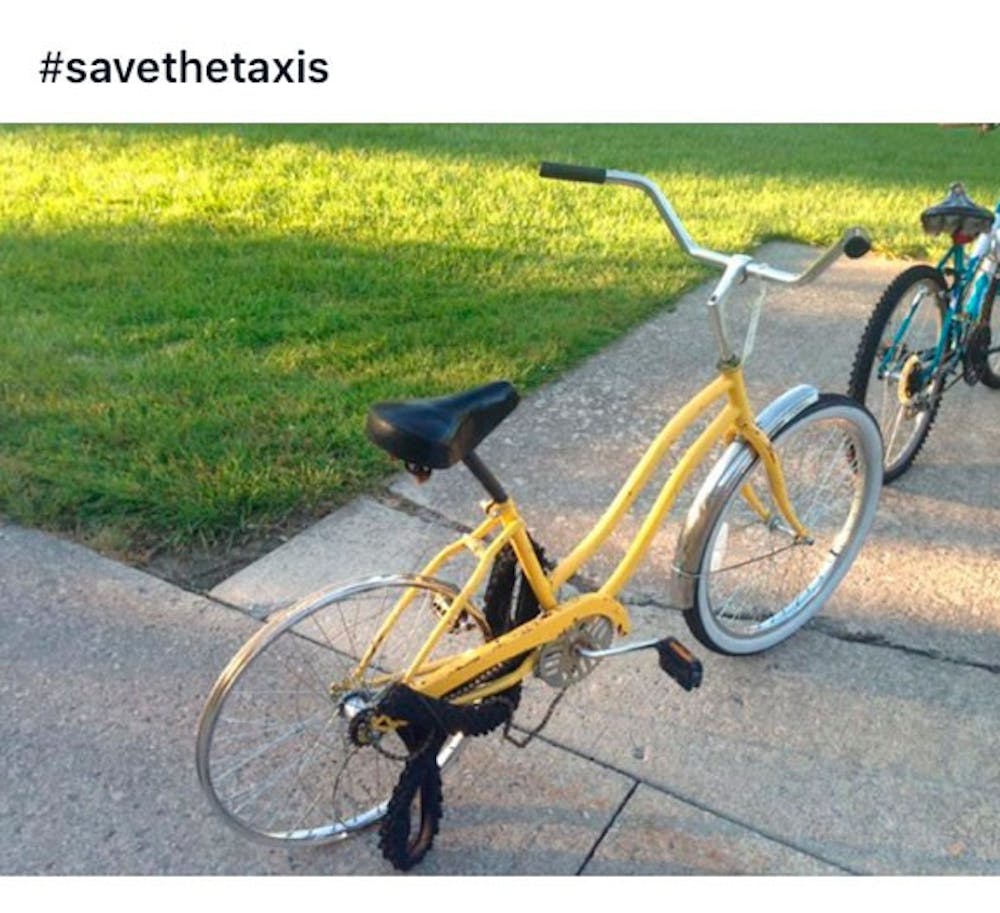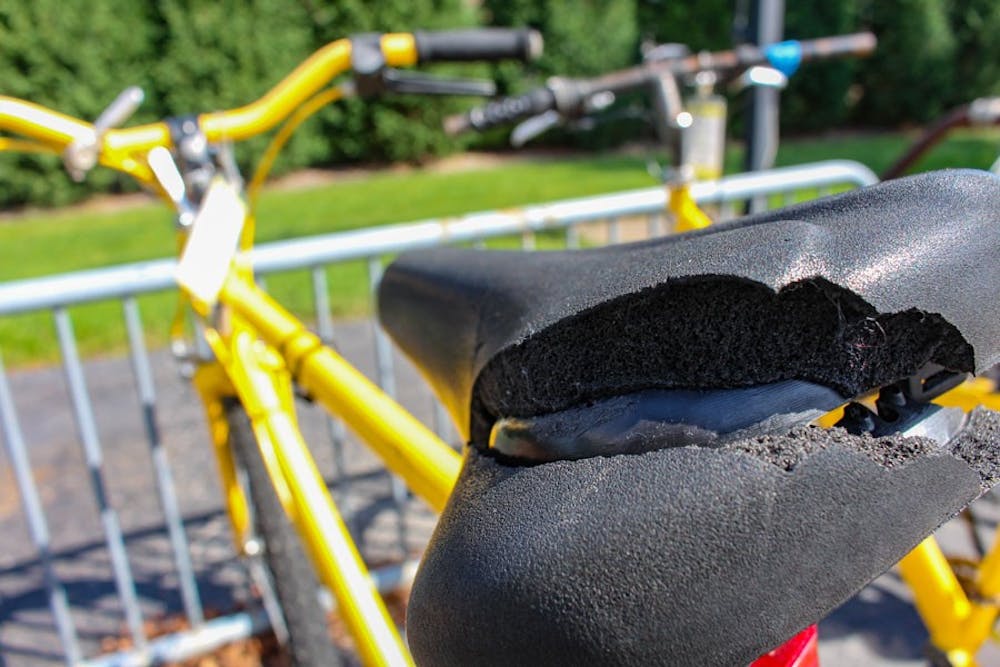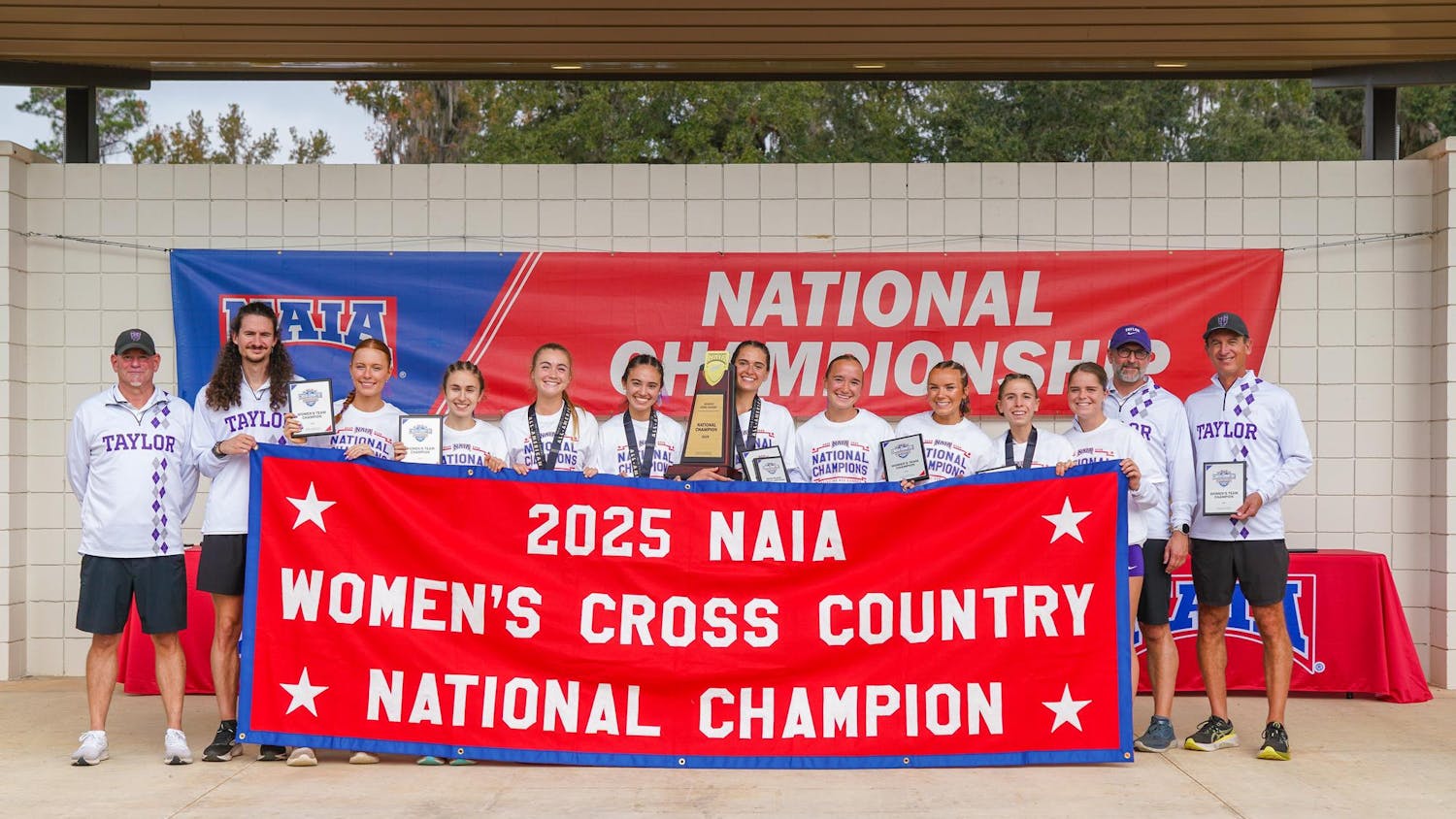By: Peyton Smith | Contributor
The absence of Taylor Taxis is felt throughout campus, especially as students look for a ride on a warm day. After they debuted, the Taylor Taxis have hit a bump in the road: the grant money for the program is depleted.

"The grant fund has always been of a finite amount," Bike Kitchen manager Sean Maynor said. "So, it was only a matter of time before the grant ran out."
The few functional taxis left on campus are stragglers that were borrowed by students living at Taylor over the summer or taken from the Bike Kitchen driveway. Maynor noted that these Taylor Taxis are not technically available for use and will be collected soon.
Currently, the Bike Kitchen is in the process of restructuring the model of Taylor Taxis and applying for more sustainable external and internal funding. The program's restructure began with cutting all paid staff and relying on a volunteer worker base. Volunteers' responsibilities include learning the tools and techniques, helping with repairs, building Taylor Taxis and maintaining the shop. The project coordinators are still looking for 5-10 volunteers who could work about 1-3 times a week.
Although nothing official has been decided, Guebert is working to develop a new system where Taylor Taxis may be available for checkout from the Zondervan Library-much like a book, laptop or movie. The Taxis would be locked up and stored on the bike rack outside Zondervan, and users would have to check out a key to access a Taxi.
According to Maynor, the idea of creating Taylor Taxis-a free, shared-use bike system-was tossed around by several individuals before the idea became reality. Mike Guebert, professor of the earth and environmental sciences department, is the ultimate brain behind the operation.

The idea was executed last summer with then-student project coordinators, Maynor, senior John Gavin, junior Isaac Beaverson and Ben Shaum ('15).
After administration gave the project permission to collect abandoned bikes in 2007 and to use the Honors Lodge garage as a shop in 2009, funding was a necessity to get the project up and running. Guebert noted that the Upcycle Bike Project received several grants from the Taylor Women's Giving Circle, Community Foundation of Grant County and the Ball Brothers Foundation in the 2012-13 academic year. The program split the funds three ways: refurbishing the garage, purchasing tools and parts for bike repair and hiring student workers.
In the 2015-16 school year, the Bike Kitchen worked hard to produce 25-35 bikes and received lots of positive feedback on the program. Maynor and Guebert agreed last year's process was good, but it had drawbacks.
According to Maynor, Taylor Taxis are created from donated and abandoned bikes left on campus at end of the school year. A notice is then sent out to encourage students to claim their bikes, and whatever bikes are left unclaimed are converted into Taylor Taxis or scrapped for parts. The taxis are gathered and kept in the Bike Kitchen so they are not stolen before being converted for their final purpose.
Once the taxis were assembled, the Bike Kitchen distributed them throughout campus. Staff monitored their condition so that repairs were able to be completed as needed. The tags found on bikes listed the rules: how to ride the bikes safely, what to do in the event of disrepair and who to contact.
Unfortunately, the first complication the program encountered, Maynor said, was broken bikes being abandoned in the exact spots where they broke down. The Bike Kitchen staff were left searching the entire campus to retrieve broken-down bikes weekly, which was a tiresome process. The majority of the time, staff member received approximately zero reports of broken bikes via phone or email.
The second difficulty was the continued use of partially broken bikes. Often students found a bike with a small problem, decided to ride it and ended up exacerbating the small problem into a larger, irreparable one, said Maynor.
The severe mistreatment served as another hardship for the Bike Kitchen staff, according to Guebert. This Taxi abuse had spent a huge chunk of the program's budget by the spring semester. One example was students hoarding all of the bikes at one hall or hiding them around campus. SophomoreHeidi Krauss recalled an incident from last year: "I was just walking back to class and-boom! There I saw a bright yellow Taylor Taxi hanging in a tree."

The Enactus student club worked on preliminary planning for Taylor Taxis last spring, and Guebert hopes that Enactus willcontinue their much appreciated help this year.
As the program evolves, release is dependent on developing working Taxis, repairs on existing Taxis and a plan to establish more responsible use.
Maynor commented on the program's official status: "We hope to move toward a model that leaves the users with both the free opportunity to ride a Taxi bike, yet also the known accountability of being responsible for the care of that bike so that we can hopefully eliminate intentional damage or careless damage."
While the Taylor Taxi program restructures to work out kinks and establishes funds, students can be proactive. These are cheap bikes not made for mountain biking. Within the walls of Taylor's Christian community, students are expected to share and treat Taxis with care and patience.





